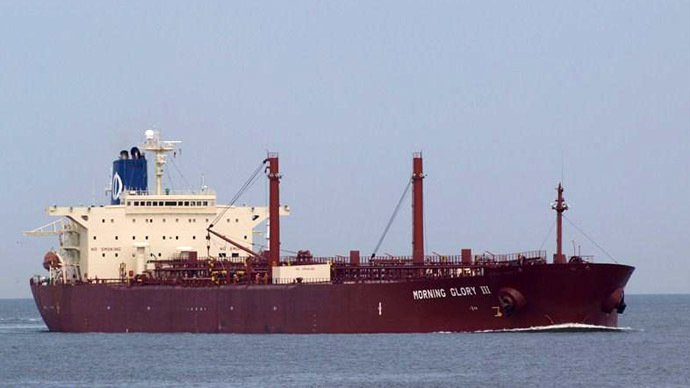(Source: Associated Press via Wall Street Journal)
What looks like a dust storm or the desert tracks of a very fast vehicle is actually the result of air strikes by American fighter jets on Islamic State (IS, formerly ISIL) militants not far from Erbil, Iraq. Friday's limited strikes resulted in limited damage, but also intend to send a warning message. However, without clearer objectives - what do the strikes intend to do? - the strikes will fail to resonate. In fact, they could spur the militants to redouble efforts or even drag American forces into a protracted, albeit likely arms-length, engagement.
Is the United States concerned with the exploding humanitarian disaster in Iraq? Among other minorities being displaced, both as refugees and internally, the Yazidis have gained special attention due to being surrounded by IS fighters (see map below). American aircraft dropped humanitarian supplies - water and food - to the besieged minority. Was this a tactical move? How does this specific situation differ from what IS militants have done elsewhere in Iraq, or Syria for that matter? The "why now" question is one that American officials would be hard-pressed to have a good answer for. There is a humanitarian disaster throughout the Middle East, perhaps one of unprecedented scale, that the United States and much of the West has thoroughly ignored.
On the other hand, is the collapsing political situation the greater worry? IS controls a large share of Iraq today and atrocities perpetrated by its rank and file are making for gory headlines. The map below offers a glimpse into the scale the Iraqi government is faced with.
(Source: Associated Press via Wall Street Journal)
Recent reports express concern over IS control over the Mosul Dam, which could wreak havoc downriver if compromised. Such control over water in the delicate region could impact IS' primary target - Baghdad. The complications multiply very quickly. Whether limited air strikes will do anything to change the situation on the ground is questionable. In 1999, the United States conducted a 78-day air campaign to make an impact on the ground in Kosovo. Are a few missiles and bombs here and there going to change much?
Is the United States simply grasping at straws to ensure its legacy? Should IS continue its advance into Kurdistan, will the United States assist, or abandon the Kurds as it has in the past? These are all critical questions that help answer the larger question - what is the objective here?


